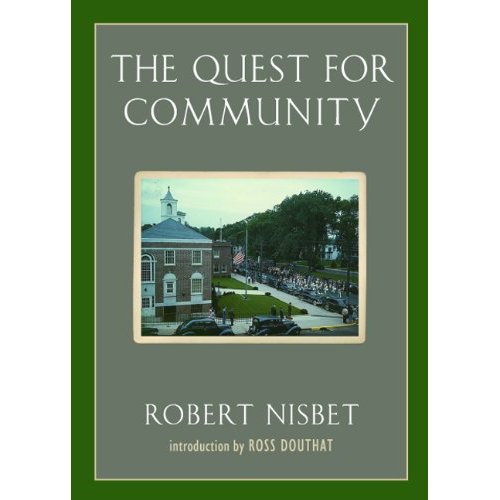 Albert Jay Nock was a thinker of immense proportions. Even when I disagree with him, he forces me to think through my foundational principles and beliefs. His article entitled Isaiah’s Job, discussing the remnant is a good example of this. Nock compares Isaiah’s life and God’s encouragement to him through a remnant people – who had not bowed their knee to Baal – to the need today for people who will lead, speak, and write for today’s remnant. Here is a portion of Nock’s article:
Albert Jay Nock was a thinker of immense proportions. Even when I disagree with him, he forces me to think through my foundational principles and beliefs. His article entitled Isaiah’s Job, discussing the remnant is a good example of this. Nock compares Isaiah’s life and God’s encouragement to him through a remnant people – who had not bowed their knee to Baal – to the need today for people who will lead, speak, and write for today’s remnant. Here is a portion of Nock’s article:
The prophet’s career began at the end of King Uzziah’s reign, say about 740 B.C. This reign was uncommonly long, almost half a century, and apparently prosperous. It was one of those prosperous reigns, however – like the reign of Marcus Aurelius at Rome, or the administration of Eubulus at Athens, or of Mr. Coolidge at Washington – where at the end the prosperity suddenly peters out and things go by the board with a resounding crash.
In the year of Uzziah’s death, the Lord commissioned the prophet to go out and warn the people of the wrath to come. “Tell them what a worthless lot they are.” He said, “Tell them what is wrong, and why and what is going to happen unless they have a change of heart and straighten up. Don’t mince matters. Make it clear that they are positively down to their last chance. Give it to them good and strong and keep on giving it to them. I suppose perhaps I ought to tell you,” He added, “that it won’t do any good. The official class and their intelligentsia will turn up their noses at you and the masses will not even listen. They will all keep on in their own ways until they carry everything down to destruction, and you will probably be lucky if you get out with your life.”
Isaiah had been very willing to take on the job – in fact, he had asked for it – but the prospect put a new face on the situation. It raised the obvious question: Why, if all that were so – if the enterprise were to be a failure from the start – was there any sense in starting it? “Ah,” the Lord said, “you do not get the point. There is a Remnant there that you know nothing about. They are obscure, unorganized, inarticulate, each one rubbing along as best he can. They need to be encouraged and braced up because when everything has gone completely to the dogs, they are the ones who will come back and build up a new society; and meanwhile, your preaching will reassure them and keep them hanging on. Your job is to take care of the Remnant, so be off now and set about it.”
Apparently, then, if the Lord’s word is good for anything – I do not offer any opinion about that, – the only element in Judean society that was particularly worth bothering about was the Remnant. Isaiah seems finally to have got it through his head that this was the case; that nothing was to be expected from the masses, but that if anything substantial were ever to be done in Judea, the Remnant would have to do it. This is a very striking and suggestive idea; but before going on to explore it, we need to be quite clear about our terms. What do we mean by the masses, and what by the Remnant?
As the word masses is commonly used, it suggests agglomerations of poor and underprivileged people, laboring people, proletarians, and it means nothing like that; it means simply the majority. The mass-man is one who has neither the force of intellect to apprehend the principles issuing in what we know as the humane life, nor the force of character to adhere to those principles steadily and strictly as laws of conduct; and because such people make up the great and overwhelming majority of mankind, they are called collectively the masses. The line of differentiation between the masses and the Remnant is set invariably by quality, not by circumstance. The Remnant are those who by force of intellect are able to apprehend these principles, and by force of character are able, at least measurably, to cleave to them. The masses are those who are unable to do either. . .
Orrin Woodward:
However, anytime one styles his message to the masses, it gets dumbed down to the point where it no longer contains the kernels of truth needed to fuel the remnant. Think about how much in education, leadership, politics, etc., has been dumbed down. In most cases, the real issues aren’t even addressed because the majority of the people cannot comprehend them. Is there any hope for America and the West if we continue to dumb everything down?
I have a counter-proposal. What if we grew the intellectual capacity of the people, rather than dumbing down the message for the people? Marva Collins has proven this model can work, teaching inner city kids Shakespeare, Plato, etc, through her unyielding love for her young community of students. What if we did that across America, Canada, and eventually the world?
Ok, sorry about that. I get a little carried away when I think about the condition of Western Civilization. Let’s get back to Nock’s Remnant:
. . . The main trouble with all this is its reaction upon the mission itself. It necessitates an opportunist sophistication of one’s doctrine, which profoundly alters its character and reduces it to a mere placebo. If, say, you are a preacher, you wish to attract as large a congregation as you can, which means an appeal to the masses; and this, in turn, means adapting the terms of your message to the order of intellect and character that the masses exhibit. If you are an educator, say with a college on your hands, you wish to get as many students as possible, and you whittle down your requirements accordingly. If a writer, you aim at getting many readers; if a publisher, many purchasers; if a philosopher, many disciples; if a reformer, many converts; if a musician, many auditors; and so on. But as we see on all sides, in the realization of these several desires, the prophetic message is so heavily adulterated with trivialities, in every instance, that its effect on the masses is merely to harden them in their sins. Meanwhile, the Remnant, aware of this adulteration and of the desires that prompt it, turn their backs on the prophet and will have nothing to do with him or his message.
Isaiah, on the other hand, worked under no such disabilities. He preached to the masses only in the sense that he preached publicly. Anyone who liked might listen; anyone who liked might pass by. He knew that the Remnant would listen; and knowing also that nothing was to be expected of the masses under any circumstances, he made no specific appeal to them, did not accommodate his message to their measure in any way, and did not care two straws whether they heeded it or not. As a modern publisher might put it, he was not worrying about circulation or about advertising. Hence, with all such obsessions quite out of the way, he was in a position to do his level best, without fear or favor, and answerable only to his august Boss.
If a prophet were not too particular about making money out of his mission or getting a dubious sort of notoriety out of it, the foregoing considerations would lead one to say that serving the Remnant looks like a good job. An assignment that you can really put your back into, and do your best without thinking about results, is a real job; whereas serving the masses is at best only half a job, considering the inexorable conditions that the masses impose upon their servants. They ask you to give them what they want, they insist upon it, and will take nothing else; and following their whims, their irrational changes of fancy, their hot and cold fits, is a tedious business, to say nothing of the fact that what they want at any time makes very little call on one’s resources of prophesy. The Remnant, on the other hand, want only the best you have, whatever that may be. Give them that, and they are satisfied; you have nothing more to worry about. The prophet of the American masses must aim consciously at the lowest common denominator of intellect, taste and character among 120,000,000 (now 300 million)people; and this is a distressing task. The prophet of the Remnant, on the contrary, is in the enviable position of Papa Haydn in the household of Prince Esterhazy. All Haydn had to do was keep forking out the very best music he knew how to produce, knowing it would be understood and appreciated by those for whom he produced it, and caring not a button what anyone else thought of it; and that makes a good job. . .
Orrin Woodward:
Nock is describing the joy of teaching hungry students. Joseph Haydn was a world-class musician and composer. Even at a young age, he displayed the aptitude, hunger, and joy of learning to develop mastery in his musical craft. I truly believe that the masses are the masses, not from lack of talent, but from lack of passion and purpose. This is the LIFE business goal, to bring passion and purpose back into people’s lives. By creating a leadership community, the goal is to reach people where they are at, teaching them principles, that if applied, would change their lives forever. We are on a mission to find the hungry masses, helping them to discover their God-given potential, passion, and purpose. Let’s return to Nock’s article:
. . . What chiefly makes it so, I think, is that in any given society the Remnant are always so largely an unknown quantity. You do not know, and will never know, more than two things about them. You can be sure of those – dead sure, as our phrase is – but you will never be able to make even a respectable guess at anything else. You do not know, and will never know, who the Remnant are, nor what they are doing or will do. Two things you do know, and no more: First, that they exist; second, that they will find you. Except for these two certainties, working for the Remnant means working in impenetrable darkness; and this, I should say, is just the condition calculated most effectively to pique the interest of any prophet who is properly gifted with the imagination, insight and intellectual curiosity necessary to a successful pursuit of his trade. . .
Orrin Woodward:
LIFE is a plan to reach the people with truth in the 8F’s, knowing that a remnant exist in the living rooms of the world; a remnant who are sick and tired of being sick and tired. This is the exact spot that Laurie and I were in. We were sick and tired of being sick and tired. We wanted changes and were willing to change ourselves if needed in order to accomplish it. The problem with the prophets to the masses today is they immediately start with a dumbed down message that only exacerbates the problems rather than solving them. In today’s battered economic conditions, people need real hope for the future like never before in America’s history. Real hope begins with changes on the inside before things can change on the outside.
Call me a dreamer, an idealist, a nut, or even a scam, but I will not cease doing what I know is right! A man with the facts is never at the mercy of a man with an opinion. I know first-hand what happened in Laurie and my life. To not offer the same opportunity to others would be selfish and wrong. I do not desire to create a political community that demands their rights. Instead, I dream of revealing to each hungry person the capabilities hidden inside of them as I discuss in the book, RESOLVED. In this way, they will demand more from themselves, becoming champions without having to demand anything from others, but simply an opportunity to perform. Alright, back to Nock:
. . . One of the most suggestive episodes recounted in the Bible is that of a prophet’s attempt – the only attempt of the kind on the record, I believe – to count up the Remnant. Elijah had fled from persecution into the desert, where the Lord presently overhauled him and asked what he was doing so far away from his job. He said that he was running away, not because he was a coward, but because all the Remnant had been killed off except himself. He had got away only by the skin of his teeth, and, he being now all the Remnant there was, if he were killed the True Faith would go flat. The Lord replied that he need not worry about that, for even without him the True Faith could probably manage to squeeze along somehow if it had to; “and as for your figures on the Remnant,” He said, “I don’t mind telling you that there are seven thousand of them back there in Israel whom it seems you have not heard of, but you may take My word for it that there they are.”
At that time, probably the population of Israel could not run to much more than a million or so; and a Remnant of seven thousand out of a million is a highly encouraging percentage for any prophet. With seven thousand of the boys on his side, there was no great reason for Elijah to feel lonesome; and incidentally, that would be something for the modern prophet of the Remnant to think of when he has a touch of the blues. But the main point is that if Elijah the Prophet could not make a closer guess on the number of the Remnant than he made when he missed it by seven thousand, anyone else who tackled the problem would only waste his time.
For these reasons it appears to me that Isaiah’s job is not only good but also extremely interesting; and especially so at the present time when nobody is doing it. If I were young and had the notion of embarking in the prophetical line, I would certainly take up this branch of the business; and therefore I have no hesitation about recommending it as a career for anyone in that position. It offers an open field, with no competition; our civilization so completely neglects and disallows the Remnant that anyone going in with an eye single to their service might pretty well count on getting all the trade there is.
Even assuming that there is some social salvage to be screened out of the masses, even assuming that the testimony of history to their social value is a little too sweeping, that it depresses hopelessness a little too far, one must yet perceive, I think, that the masses have prophets enough and to spare. Even admitting that in the teeth of history that hope of the human race may not be quite exclusively centered in the Remnant, one must perceive that they have social value enough to entitle them to some measure of prophetic encouragement and consolation, and that our civilization allows them none whatever. Every prophetic voice is addressed to the masses, and to them alone; the voice of the pulpit, the voice of education, the voice of politics, of literature, drama, journalism – all these are directed towards the masses exclusively, and they marshal the masses in the way that they are going.
One might suggest, therefore, that aspiring prophetical talent may well turn to another field. . . So long as the masses are taking up the tabernacle of Moloch and Chiun, their images, and following the star of their god Buncombe, they will have no lack of prophets to point the way that leadeth to the More Abundant Life; and hence a few of those who feel the prophetic afflatus might do better to apply themselves to serving the Remnant. It is a good job, an interesting job, much more interesting than serving the masses; and moreover it is the only job in our whole civilization, as far as I know, that offers a virgin field.
If you are part of the leadership remnant, or desire to be; if you are hungry and willing to change; if you are sick and tired of being sick and tired, then LIFE is calling. It’s time for the leadership remnant to answer the call. Sincerely, Orrin Woodward











